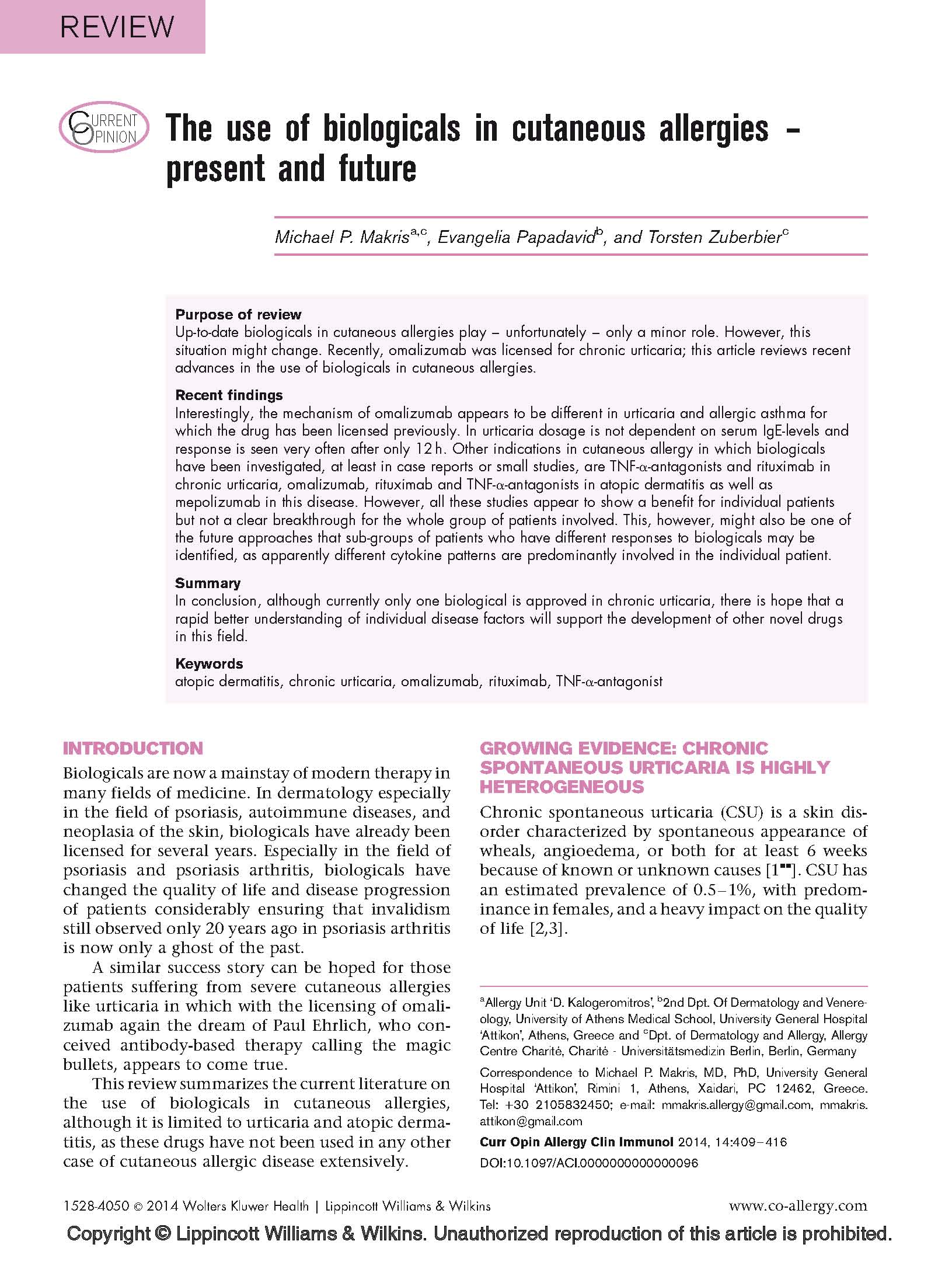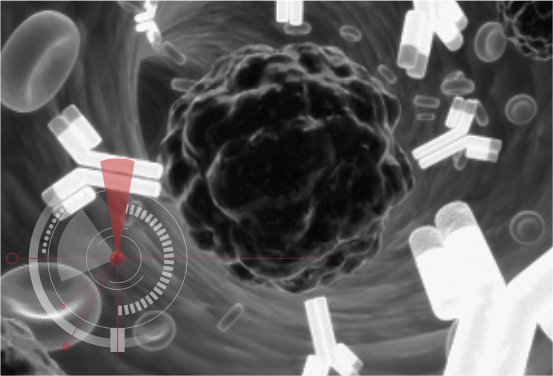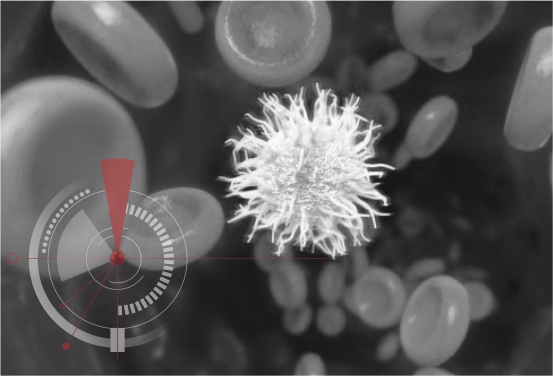Investigación y Desarrollo
The use of biologicals in cutaneous allergies –The use of biologicals in cutaneous allergies –present and future
Michael P. Makrisa,c, Evangelia Papadavidb, and Torsten Zuberbierc
Purpose of review
Up-to-date biologicals in cutaneous allergies play – unfortunately – only a minor role. However, thissituation might change. Recently, omalizumab was licensed for chronic urticaria; this article reviews recentadvances in the use of biologicals in cutaneous allergies.
Recent findings
Interestingly, the mechanism of omalizumab appears to be different in urticaria and allergic asthma forwhich the drug has been licensed previously. In urticaria dosage is not dependent on serum IgE-levels andresponse is seen very often after only 12 h. Other indications in cutaneous allergy in which biologicalshave been investigated, at least in case reports or small studies, are TNF-a-antagonists and rituximab inchronic urticaria, omalizumab, rituximab and TNF-a-antagonists in atopic dermatitis as well asmepolizumab in this disease. However, all these studies appear to show a benefit for individual patientsbut not a clear breakthrough for the whole group of patients involved. This, however, might also be one ofthe future approaches that sub-groups of patients who have different responses to biologicals may beidentified, as apparently different cytokine patterns are predominantly involved in the individual patient.
Summary
In conclusion, although currently only one biological is approved in chronic urticaria, there is hope that arapid better understanding of individual disease factors will support the development of other novel drugsin this field.Keywordsatopic dermatitis, chronic urticaria, omalizumab, rituximab, TNF-a-antagonist











